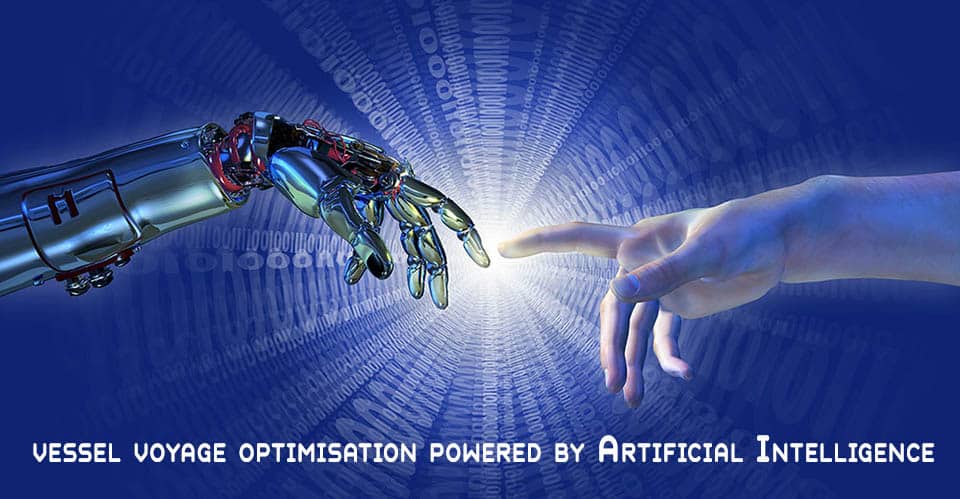
인공 지능(AI) 성능 라우팅을 사용하여 차량의 탈탄소화 궤적을 즉시 가속화하고 연료 비용을 줄이십시오. Performance Routing은 현재 차량의 연료 소비 및 CII에 정량화할 수 있는 중요한 영향을 미치며 첫날부터 큰 영향을 미치는 결과를 제공합니다.
"심해 선박 항해 최적화 AI 솔루션 배출량을 줄이고 연료 소비를 줄이며 작동 중 안전성을 높입니다. 항해의 모든 측면에서 윈윈입니다."
Geir Fagerheim(SVP Marine Operations) Wallenius Wilhelmsen
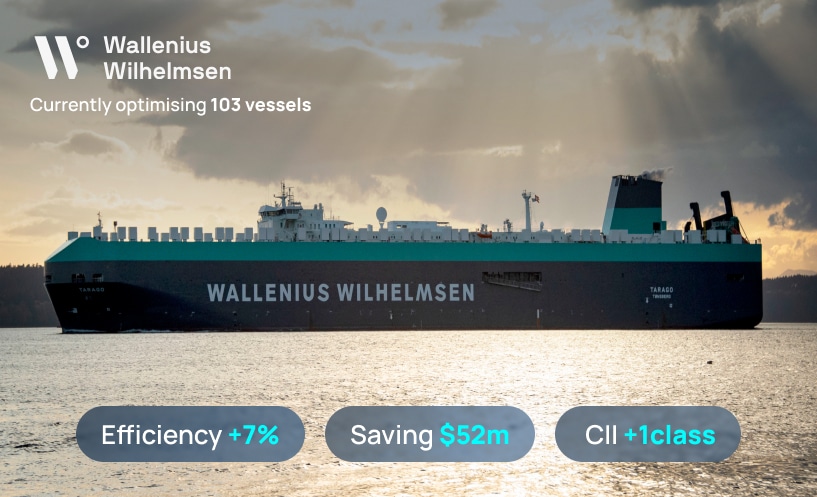
깊은 바다 최신 AI 기술을 활용하여 선박을 보다 효율적으로 만듭니다. 기술 및 해양 분야의 전문가를 모아 DeepSea는 다음에 중점을 둡니다. 효율성 증가 그리고 선박의 연료 소비 감소 상세한 AI 생성 성능 모델로 구동되는 기술 및 운영 통찰력의 조합을 통해 21세기를 위한 성능 선박 경로.
우리는 미래 지향적인 운송 회사와 협력하여 운송 산업을 보다 효율적이고 친환경적이며 더 잘 연결되도록 만듭니다.

DeepSea는 미래 지향적인 해양 운송 회사와 협력하여 해양 운송 산업을 보다 효율적이고 친환경적이며 더 잘 연결되도록 만듭니다. 최고의 인공지능(AI)을 해운산업에 도입하기 위해 2017년 설립된 해운업계의 선두주자 AI팀, 업계에서 가장 발전된 AI 팀이 제공합니다. 활발한 연구 문화를 바탕으로 전 세계 회의에 학술 논문을 기고하고 AI의 국제 이니셔티브를 운영하며 이러한 모든 발전을 효율성 향상 제품에 적용합니다.
AI 기반의 최적화된 선박 항해를 지속적으로 제공하기 위해 DeepSea는 선박에서 데이터를 가져와 (AI를 사용하여) 클라우드에서 정확한 선박 모델을 생성합니다. 이 모델은 실시간으로 업데이트되어 선박의 상태와 정확히 일치하고 선박을 보다 효율적으로 운영할 수 있도록 지원합니다. 보다 효율적인 항해, 각 선박에 대한 맞춤형 계획 항해.
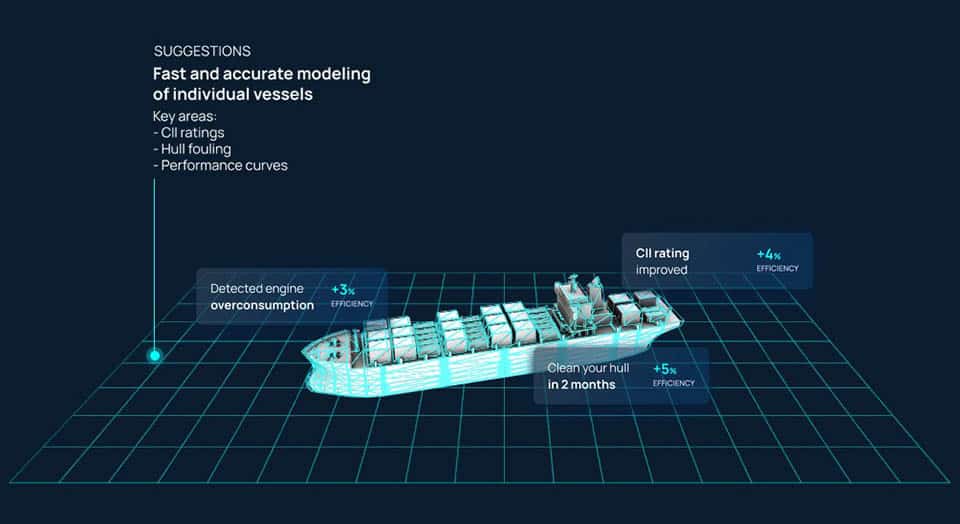
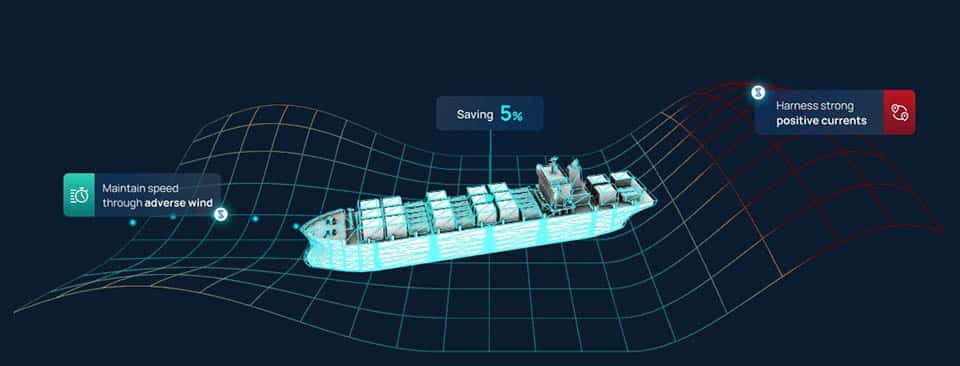
DEEPSEA Pythia – 21세기를 위한 퍼포먼스 선박 경로 지정
모든 기상 조건에서 선박의 정확한 성능에 맞춰진 세계 최초의 기상 경로 플랫폼입니다. 강력한 AI 모델은 모든 날씨 및 오염 조건에서 선박이 어떻게 작동하는지 정확히 이해합니다.
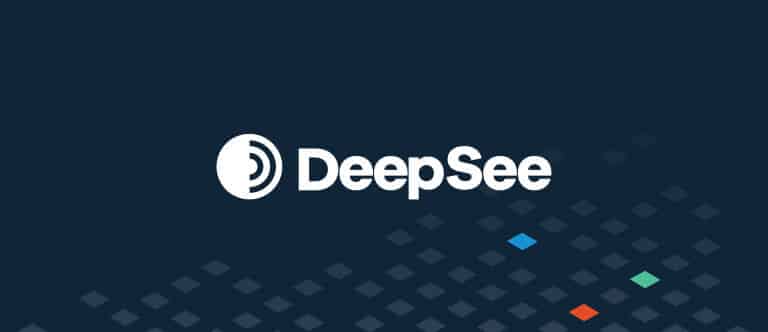
DeepSea의 플랫폼은 현재 20개 이상의 선박 선단에 설치되어 있으며 가능한 모든 조건에서 각 선박의 에너지 소비를 예측하도록 훈련된 딥 러닝 모델을 기반으로 각 선박에 대한 맞춤형 속도 및 선박 경로 권장 사항을 정확하게 제공합니다.
“인간은 아무리 오랜 경험을 가지고 있어도 이러한 자동화된 지침과 경쟁할 수 없습니다. 배기 가스를 줄이고 연료 소비를 줄이며 운영 안전성을 높입니다.”
"해운의 모든 측면에서 윈윈입니다."
Geir Fagerheim, Wallenius Wilhelmsen Shipping Company의 해양 운영 SVP
해양 산업에서 신기술 및 관행 도입의 선두주자로 알려진 Wallenius Wilhelmsen은 120척 이상의 Ro-Ro 선박 전체에서 선박 항해를 최적화하기 위해 완전한 AI 기반 접근 방식을 채택한 최초의 글로벌 해운 회사가 되었습니다. .
세계 최대의 자동차 운송업체인 Wallenius Wilhelmsen은 이 거래를 성사시키기 위해 DeepSea의 소프트웨어를 18개월 동안 엄격하게 시험 사용했습니다. DeepSea의 Roberto Cuestas 사장(DeepSea)은 “지금은 선박 분야에서 의미 있고 입증된 인공 지능(AI) 구현을 위한 분기점입니다. 환경 규제 – 대부분은 립 서비스일 뿐입니다. 해운회사 입장에서는 무엇이 진짜인지 마케팅인지 구분하기 어렵다. 이 파트너십은 업계에서 가장 앞선 회사 중 하나에서 우리의 기술과 접근 방식을 승인하는 또 다른 스탬프입니다.” 18개월 시험에서 Wallenius Wilhelmsen 함대의 하위 집합에서 7%의 완전히 검증된 성능 향상이 나타났으며 전체 함대에서 프로젝트가 완료되면 이 수치는 10%로 증가할 것으로 예상됩니다. 이는 75,000톤 이상의 연료 절감 및 240,000톤의 이산화탄소(C02) 배출 방지와 동일하며 선박이 새로운 산업 배출 규정을 준수하는 데 크게 도움이 될 것입니다. Wallenius Wilhelmsen은 2030년까지 배출량을 27,5%까지 줄이겠다는 야심 찬 목표를 세웠습니다. “이 감소량의 절반은 기존 선박에서 나와야 합니다. 우리는 기존 차량에 대해 환경 친화적인 솔루션을 찾기 위해 부지런히 노력하고 있습니다. 우리의 목표는 전체 함대에서 선박 효율성을 높이기 위해 이 혁신적인 항해 최적화 솔루션을 구현하는 것입니다.”라고 Wallenius Wilhelmsen의 SVP Marine Operations인 Geir Fagerheim이 말했습니다.
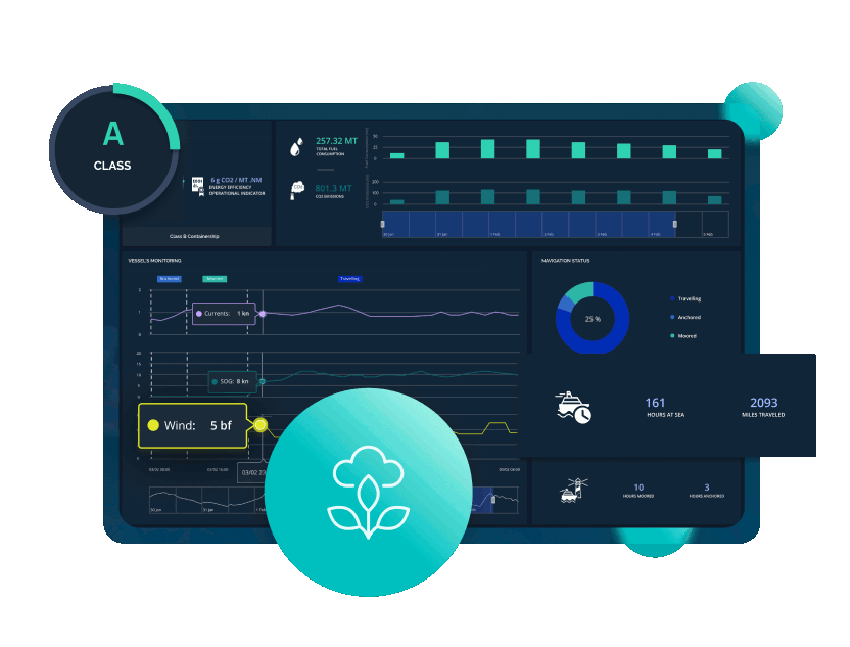
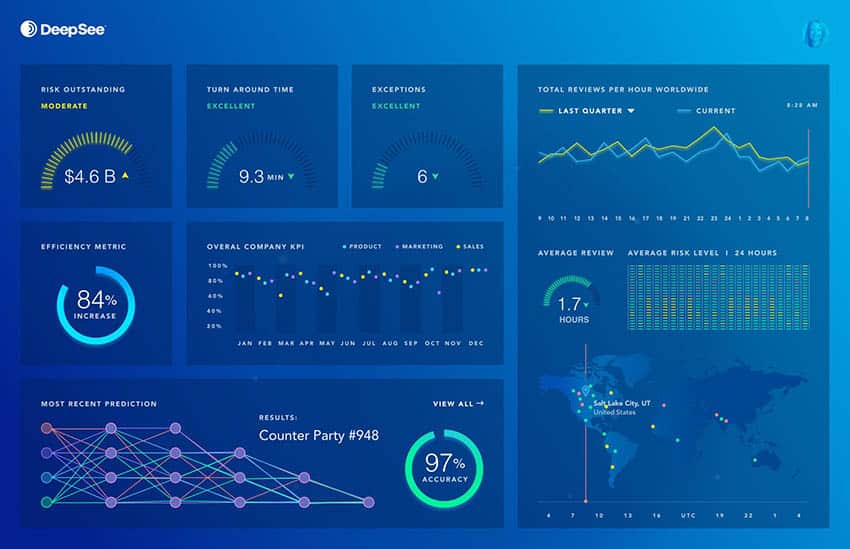
– – –
싱가포르, 노르웨이, 일본 등의 운송 회사를 포함하는 그리스 회사 DeepSea AI의 고객은 DeepSea의 기술을 통해 8%-12%의 연료를 절약하고 환경 발자국을 줄일 수 있습니다. 항로가 선장이 아니라 알고리즘에 의해 "결정"되는 자율 선박 개발의 길은 일본 다국적 기업 Nabtesco가 Konstantinos Kyriakopoulos와 Roberto Kousta가 설립한 DeepSea Technologies를 인수함으로써 열렸습니다. 증권 거래소 도쿄.
“우리가 수년 동안 개발해 온 기술은 이 방향으로 향하고 있었습니다. 이제 우리는 하드웨어 시스템이 없었기 때문에 이 목표를 실현할 수 있는 올바른 파트너를 갖게 되었습니다. 우리 기술의 조합을 통해 우리는 기존 선박을 자율 선박으로 전환할 수 있을 뿐만 아니라 새로운 선박에 시스템을 설치할 수도 있습니다. DeepSea는 항해 중 상선(탱커, 컨테이너)의 성능에 관한 데이터를 실시간으로 수집하여 성능(연료 절약, 탄소 배출 감소)을 고려하여 최적화하는 모델을 생성하는 인공 지능 플랫폼을 개발했습니다. 기상 조건, 각 선박의 특성 등
이 기술은 300척 이상의 선박에 사용됩니다. "본질적으로 이 인공 지능 모델을 통해 우리는 기장이 환경 오염을 최소화하고 가능한 최상의 성능으로 목적지에 도달하도록 돕습니다."라고 Koustas 씨는 설명합니다. 여기에서 DeepSea와 Nabtesco의 시스템이 함께 '병합'되어 DeepSea가 선박에 제공하는 '명령'(예: 기상 조건에 따른 선박의 최적 속도)을 자동화할 수 있습니다. Kyriakopoulos 씨는 “선박의 자율성은 훨씬 더 많은 연료를 절약하기 위해 모든 움직임을 최대한 제어하는 것을 기반으로 할 것입니다.”라고 말합니다.
회사에 따르면 싱가포르, 노르웨이, 일본 등의 운송 회사를 포함한 고객은 DeepSea의 기술을 사용하여 비용을 절감할 수 있습니다. 8%-12% 연료 그리고 환경에 미치는 영향을 줄입니다.. 유럽 연합이 해운 부문에 압력을 가하는 가운데 해운에 대한 탄소세 부과가 논의되고 있기 때문에 후자는 매우 중요한 것으로 간주됩니다.
90명으로 구성된 DeepSea 팀(그리스에 위치한 80%)은 다음 기간에 110명으로 늘어날 것으로 예상되며 아테네는 일본 기업 활동을 위한 인공 지능 센터로 변모하고 있습니다. 이들은 해운 산업에 국한되지 않고 철도 자동화, 항공, 풍력 터빈 등으로 확장됩니다. Kyriakopoulos 씨는 “Nabtesco의 투자로 우리가 산업용 인공 지능(산업용 AI)이라고 부르는 기술이 그리스에서 개발될 것입니다.”라고 말했습니다. . "우리는 자율성과 인공 지능에서 원하는 것을 구현하기 위한 장기 실행 계획을 가지고 있습니다."
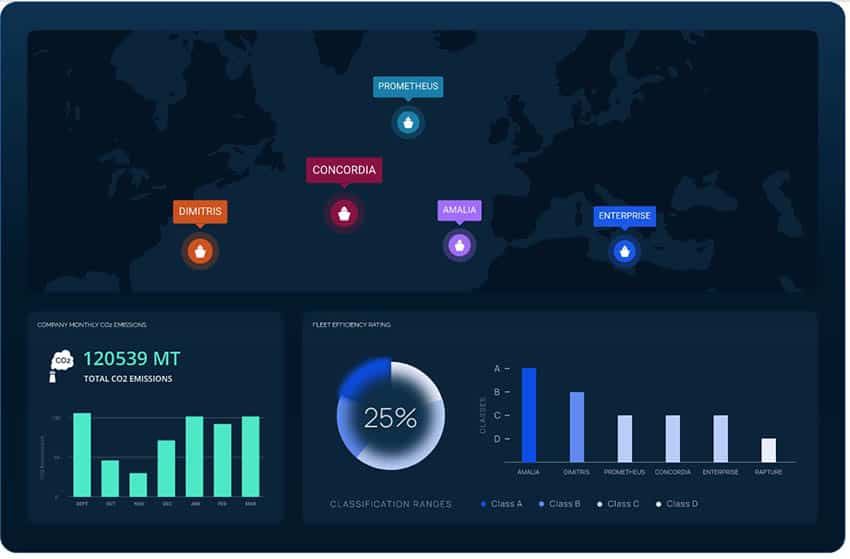
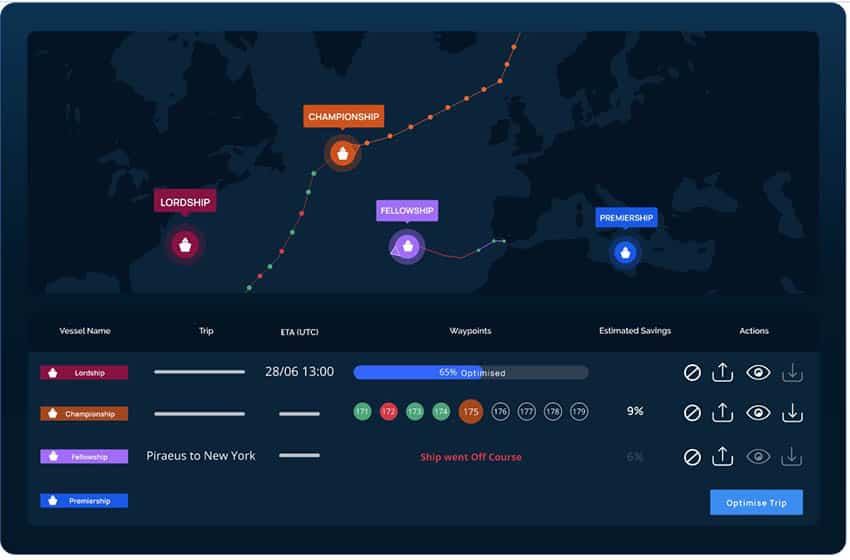
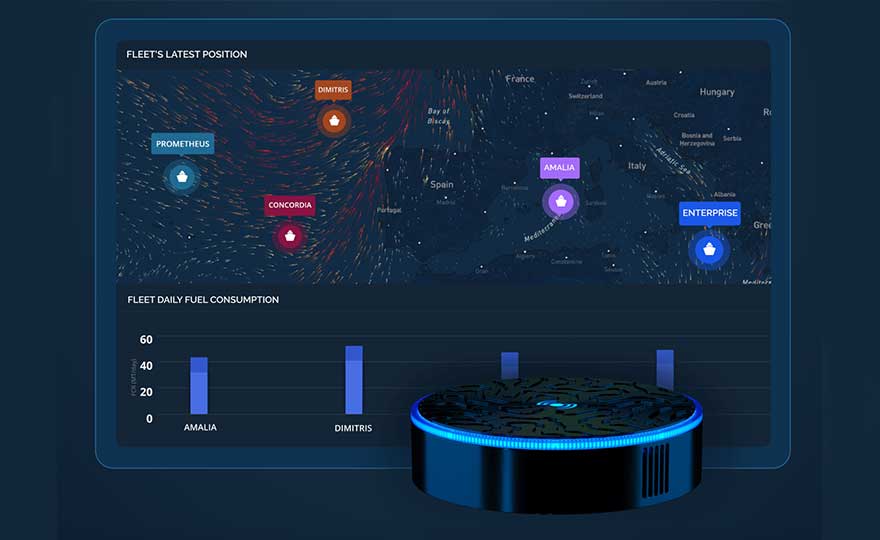
(2022년 9월 7일) Wallenius Wilhelmsen은 항해 최적화에 완전한 AI 기반 접근 방식을 채택한 최초의 글로벌 해운 회사 120척 이상의 선박으로 구성된 전체 함대에 걸쳐 있습니다.
발레니우스 빌헬름센 해운 회사는 DeepSea를 출시했습니다. 성능 라우팅 소프트웨어, 2022년과 2023년의 마지막 분기에 선박별 경로 및 속도 계획을 제공합니다. 해양 운송 업계에서 가장 미래 지향적인 회사 중 하나인 Wallenius Wilhelmsen은 배출량을 27.5%까지 줄이겠다는 야심 찬 목표를 설정했습니다. 2030년까지. DeepSea와의 이번 작업은 이를 충족하기 위한 중요한 단계입니다.
Geir Fagerheim, Wallenius Wilhelmsen의 해양 운영 SVP, 말한다:
“인간은 아무리 오랜 경험을 가지고 있더라도 이러한 자동화된 항해 지침과 경쟁할 수 없습니다. 배기 가스를 줄이고 연료 소비를 줄이며 작동 중 안전성을 높입니다. 항해의 모든 측면에서 윈윈입니다.”
전 세계 최초의 이 획기적인 결정은 신속하게 내려진 것이 아니라 18개월간의 엄격한 단계별 테스트를 거쳤습니다.
이 포괄적인 시험 기간에서 최종적으로 나온 수치는 중요합니다.
선박 효율이 6,9% 개선되고 선단 전체의 배출량이 170,000톤 이상 감소할 것으로 예상됩니다.
그러나 초점을 맞추는 것만큼이나 중요한 것은 이 파트너십으로 이어진 18개월 간의 긴밀한 협력 기간에서 나온 핵심 학습입니다.
10월 13일, Wallenius Wilhelmsen과 DeepSea는 이 검증 기간을 온라인으로 논의하는 가상 웨비나를 수행하고 선박 항해 최적화를 통한 탈탄소화에 대한 핵심 학습 내용을 함께 논의했습니다.탈탄소화를 위한 항해 최적화 – 온라인 웨비나).
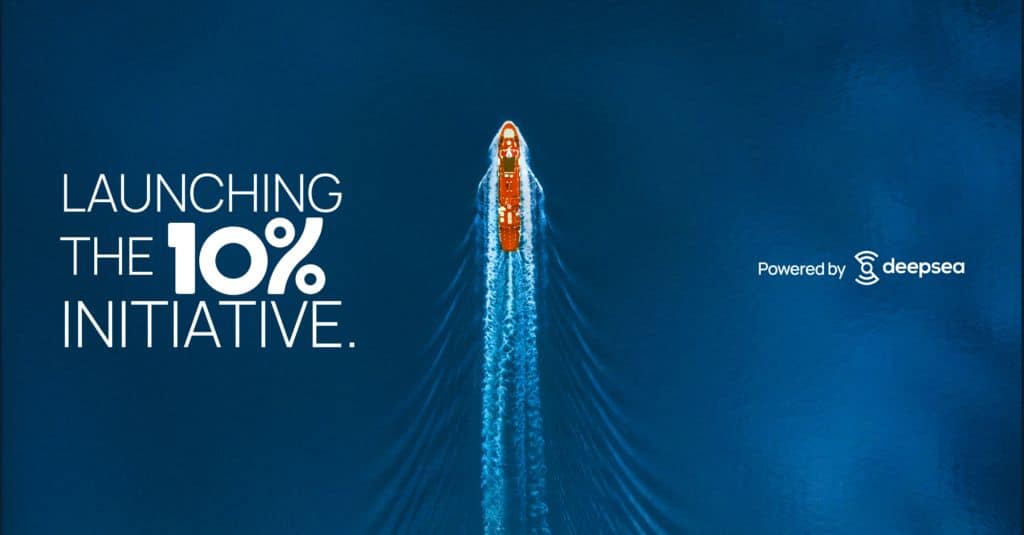
10% 이니셔티브는 무엇입니까? 해양 선박 에너지 비용을 10%로 줄이기 위한 움직임인 이 접근 방식은 검증되고 비용 효율적이며 12개월 이내에 달성할 수 있습니다. 10% 이니셔티브는 DeepSea와 이니셔티브 회원사(EUROSEAS Ltd, EuroDRY Ltd, ETF Partners, Nabtesco)가 협력하여 모두에게 가시적인 혜택을 제공하는 실질적이고 측정 가능하며 영향력 있는 일을 하겠다는 약속입니다.
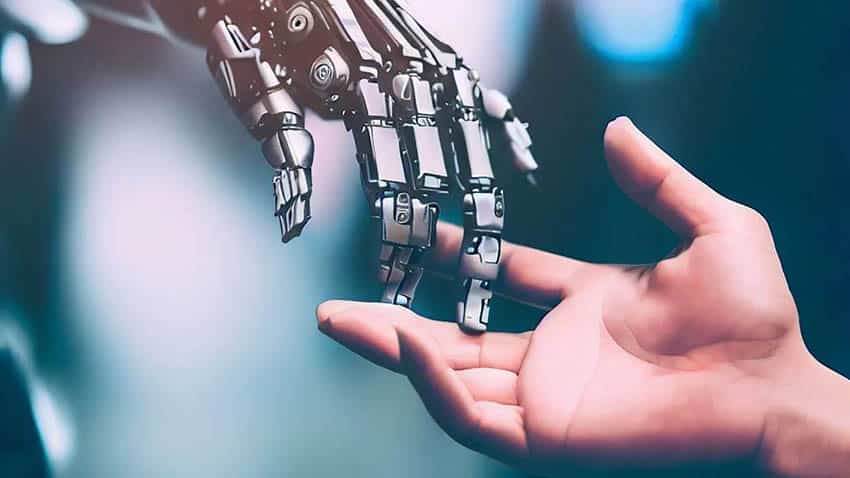
Wallenius Wilhelmsen Cargo Shipping 거인은 인공 지능 AI 항해 최적화 솔루션을 테스트하고 있습니다. (2022년 9월 16일)
항해 최적화(여행을 위한 최적의 경로와 속도 선택)와 관련하여 선박의 선장은 정보에 입각한 결정을 내릴 수 있는 도구가 없다고 해운 회사 Wallenius Wilhelmsen(화물선)의 Mr Fagerheim은 설명합니다. 이것이 그들이 여정을 시작할 때 힘들고 빠르게 가는 이유입니다. 이후 상황을 예측할 수 없기 때문입니다. AI 기반 항해 최적화 플랫폼이 필요한 곳입니다.
해양 산업에서 AI 솔루션의 채택은 초기 단계에 있지만 인공 지능은 함대 효율성을 최적화하는 데 있어 엄청난 잠재력을 가지고 있습니다. 항해 최적화를 위한 AI 기술은 주로 선박 연료 소비를 줄이는 데 중점을 두어 CO2 배출량과 운영 비용을 줄입니다. Lloyd's Register의 Maritime Performance Services는 선박 최적화를 위해 AI를 사용하고 궁극적으로 선박 성능을 개선하는 데 도움이 되는 방대한 경험을 개발했습니다. 기존 및 레거시 데이터 분석은 10%의 선박 데이터만 보는 반면 AI 모델은 이제 100%에 가까운 선박 데이터를 보고 이 데이터를 즉시 처리하여 연료 소비, 속도, 트림, 선체 오염 및 동력에 대한 매우 정확한 선박 성능 통찰력을 생성할 수 있습니다. 소비”(Andy McKeran, 해양 성능 서비스 이사, Lloyd's Register). 해상 운송 산업에서 AI 인공 지능 솔루션에 대한 지출은 향후 5년 동안 두 배 이상 증가하여 2027년까지 $27억, 복합 연간 성장률은 23%에 달할 것으로 예상됩니다.
고성능 컴퓨팅을 위한 데이터의 가용성이 자동화 채택과 함께 증가함에 따라 Wärtsilä Voyage는 인공 지능과 머신 러닝이 주목해야 할 기술이라고 믿습니다.
Maritime Industry가 성능 관리를 위해 AI에 투자하는 네 가지 방법
AI, IOT, 비즈니스 인텔리전스, 데이터 분석은 운송 운영 방식을 변화시키고 비용을 절감하고 인간의 삶에 대한 위험을 줄입니다. 선도적인 해운 회사는 AI 지원 기술을 배포하여 선박 성능에 대한 더 큰 통찰력을 얻었으며 기존 회사와 신생 기업 모두 AI의 경계를 넓힐 새로운 방법을 찾고 있습니다.
세계는 운송산업을 기반으로 한 글로벌 무역으로 서로 연결되어 있습니다. 그리고 2030년까지 해상 무역이 거의 3분의 1로 증가하고 예측 기간 동안 최대 74조 톤의 마일리지가 증가하여 계속 성장할 것입니다.
즉, 바다는 상당한 교통량 증가를 경험하고 압력은 훨씬 더 높아질 것이며 해양 사고 및 해상 사고의 위험은 계속될 것입니다. 약 90%의 해양 사상자와 인간의 실수로 인한 사고로 추정되며, 해상 책임 보험 청구 비용은 14억 유로가 넘습니다.
이는 실제로 기업이 인적 오류를 제거하여 생산성, 효율성 및 안전을 개선하기 위한 궁극적인 솔루션으로 인공 지능(AI) 및 머신 러닝의 변혁적 기술을 기반으로 하는 자동화에 투자하도록 촉구했습니다.
통계에 따르면 AI는 운송 및 물류 산업의 성과를 거의 90%까지 높일 수 있는 능력이 있으며 잠재적으로 업계의 연간 수익을 최대 0.45조 유로까지 증가시킬 수 있습니다.
“자율운송은 해양산업의 미래입니다. 스마트폰만큼 파괴적인 스마트 선박은 선박 설계 및 운영 환경을 혁신할 것입니다.”
Mikael Mäkinen, Rolls-Royce Plc 해양 부문 사장
AI 기반 항해 최적화 인공 지능 도구는 해상 운송 항법 부문에 단계적 변화를 제공합니다.
해상 운송 부문은 초기 계획에 따라 탄소 연료 배출량을 줄이는 방법을 찾기 위해 열심히 노력해 왔습니다. IMO 온실가스 전략 그리고 해양 2050 의제 자율성과 미래 연료에 중점을 둡니다. 그러나 압력이 계속해서 증가함에 따라 COP26 기존 선박 함대 전체에서 감소 가능성을 열어주는 솔루션이 필수적입니다.
AI(인공 지능) 및 해양 산업에서의 응용에 대한 간략한 소개
2023년 SMART4SEA 아테네 포럼에서 Mr Themistoklis Sardis(Costamare Shipping Company SA의 IT 관리자)는 화물 취급 및 관리 자동화, 경로 및 물류 최적화, 예측 유지보수를 포함하여 해운 산업에 여러 AI 애플리케이션이 있다고 설명했습니다. 선박 및 기타 장비.
AI가 해양 산업을 어떻게 변화시키고 있습니까? 인공 지능이 어떻게 사용되고 해양 운송 산업에 도움이 됩니까!
많은 산업에서 AI의 이점을 활용하고 이를 사용하여 운영을 간소화하고 귀중한 통찰력을 얻지만 각 산업에는 고유한 응용 프로그램이 있습니다. 해양 산업이 AI와 기계 학습을 어떻게 채택하고 있는지 이해하면 이 장비와 함께 물에서 작업할 수 있도록 더 잘 준비할 수 있습니다.
무료 구매자 가이드 – 운송 산업을 위한 선도적인 인공 지능(AI) 회사
배송 AI 솔루션 제조업체 및 공급업체, 선박 경로 최적화 및 계획 제품에 대한 자세한 정보와 연락처 정보가 포함된 무료 문서(구매자 가이드)로 구매 결정을 알립니다(무료 사본 다운로드).
증기. 전기. 인터넷. 이 세 가지 산업 혁명은 세상이 작동하는 방식에 대한 모든 것을 바꿔 놓았습니다. 오늘날 우리는 인공지능(AI)이라는 4차 산업혁명의 한복판에 있습니다. 해운업이 전통적인 "구식" 모델로 운영된다는 일반적인 믿음과는 달리, 이 자동화 주도 산업 혁명의 일부로서 새로운 진보는 혁신과 변화의 새로운 패턴을 창출했습니다. 배송 4.0입니다.
인공 지능(AI)이란 무엇입니까? 인공 지능 컴퓨터와 기계를 활용하여 인간 마음의 문제 해결 및 의사 결정 능력을 모방합니다.. (IBM)
인공 지능은 인간이나 동물의 지능과 달리 기계나 소프트웨어의 지능입니다. (인공지능 – 위키백과)
인공 지능, 일반적으로 지능적인 존재와 관련된 작업을 수행하는 컴퓨터 또는 컴퓨터 제어 로봇의 능력. (인공 지능(AI): 정의, 예, 유형 – Britannica)
인공지능(AI)이란?
인공 지능은 기계, 특히 컴퓨터 시스템에 의한 인간 지능 프로세스의 시뮬레이션입니다. AI의 특정 응용 프로그램에는 전문가 시스템, 자연어 처리, 음성 인식 및 머신 비전이 포함됩니다.
AI는 어떻게 작동합니까?
AI에 대한 과대 광고가 가속화되면서 벤더들은 제품과 서비스에서 AI를 사용하는 방식을 홍보하기 위해 안간힘을 쓰고 있습니다. 종종 그들이 AI라고 부르는 것은 단순히 기계 학습과 같은 기술의 구성 요소입니다. AI는 기계 학습 알고리즘을 작성하고 교육하기 위한 특수 하드웨어 및 소프트웨어의 기반이 필요합니다. 단일 프로그래밍 언어는 AI와 동의어가 아니지만 Python, R, Java, C++ 및 Julia에는 AI 개발자에게 인기 있는 기능이 있습니다. (인공 지능이란 무엇이며 AI는 어떻게 작동합니까 – TechTarget)
AI, 기계 학습 및 딥 러닝의 차이점
일체 포함, 기계 학습 그리고 딥 러닝 엔터프라이즈 IT에서 흔히 사용되는 용어이며 특히 회사의 마케팅 자료에서 상호 교환적으로 사용되는 경우가 있습니다. 그러나 차이점이 있습니다(자세한 내용은 다음에서 참조하십시오. AI 대 머신 러닝 대 딥 러닝: 주요 차이점 (techtarget.com)
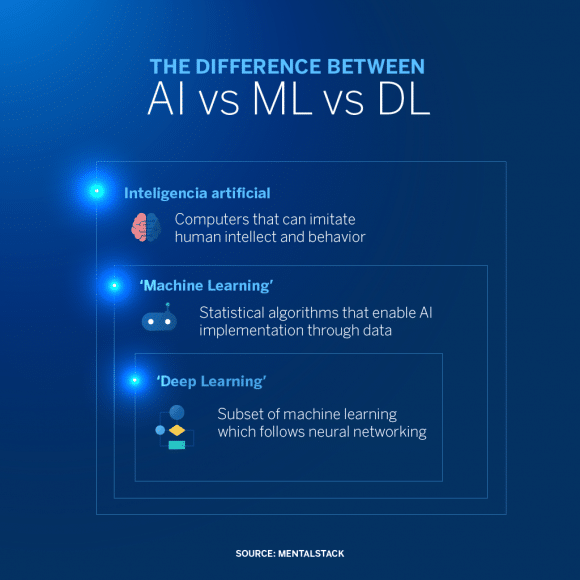
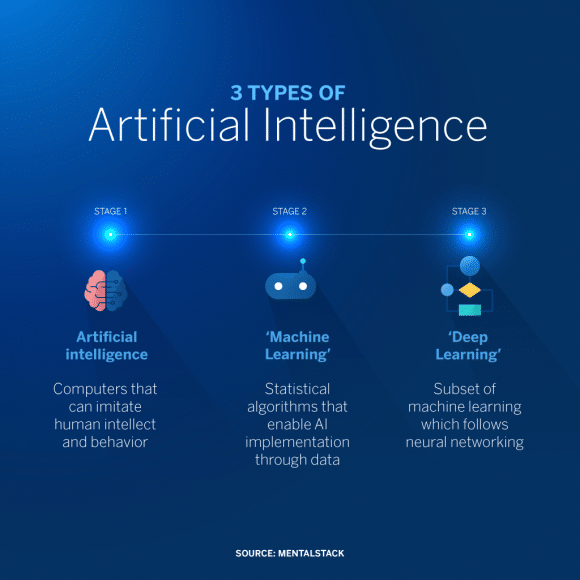
AI 지능의 4가지 유형은 무엇입니까?
이러한 유형의 AI 중 일부는 현재 과학적으로도 가능하지 않습니다. 현행 분류체계에 따르면 다음과 같다. 네 기본 AI 유형: 반응성, 제한된 기억, 정신이론, 자기인식. (원천: 인공 지능의 4가지 유형 이해 – bernardmarr.com )
인공 지능이란 무엇입니까? 인공 지능에 대해 알아야 할 모든 것, AI의 매력적이고 빠르게 발전하는 기술 - 지디넷닷컴
인공 지능이란 무엇입니까? 인공 지능에 대해 알아보기 – Oracle.com의 AI에 대한 매우 포괄적인 기사
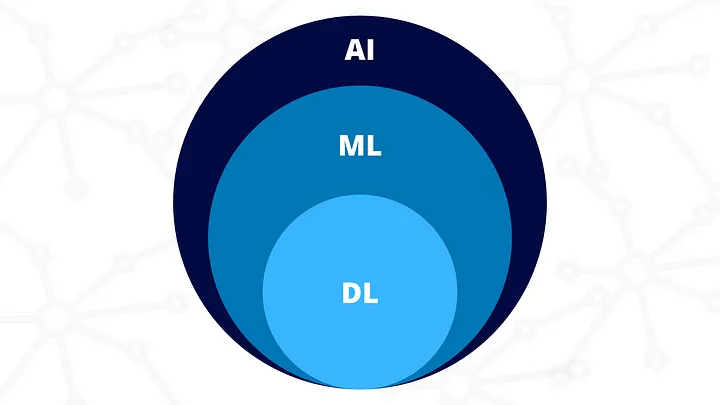
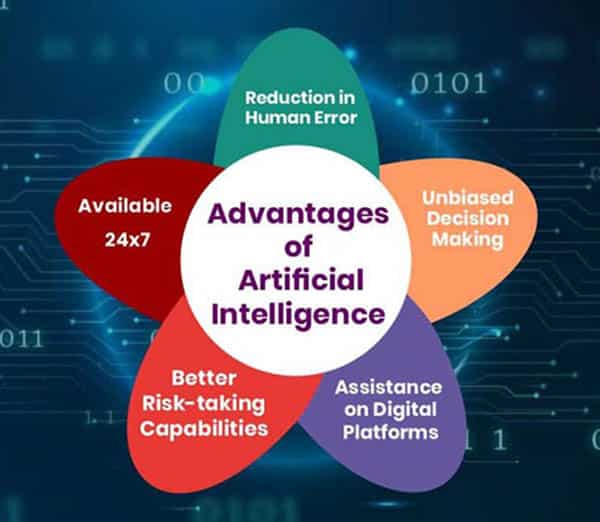
인공 지능(AI)이란 무엇입니까? (AI 앱 자체에 따르면 🙂 … 채팅GPT)
인공 지능(AI) 일반적으로 인간 지능이 필요한 작업을 수행할 수 있는 기계에서 인간 지능을 시뮬레이션하는 것을 말합니다. 이러한 작업에는 학습, 추론, 문제 해결, 인식, 언어 이해 및 의사 결정과 같은 것들이 포함됩니다.
AI 시스템은 데이터를 분석하고, 패턴을 인식하고, 해당 데이터를 기반으로 정보에 입각한 결정 또는 예측을 내리도록 설계되었습니다. 반복 학습 프로세스를 통해 시간이 지남에 따라 성과를 개선하도록 교육받을 수 있습니다. AI 기술은 좁거나 약한 AI와 일반 또는 강한 AI의 두 가지 범주로 크게 분류됩니다.
좁거나 약한 AI: 이러한 유형의 AI는 특정 작업 또는 좁은 범위의 작업을 위해 설계되고 훈련됩니다. 종종 인간의 능력을 능가하는 이러한 작업을 수행하는 데 탁월하지만 사전 정의된 범위를 벗어나는 작업을 이해하거나 수행하는 능력이 부족합니다. 좁은 AI의 예로는 Siri 또는 Alexa와 같은 음성 비서, 이미지 인식 시스템 및 스트리밍 서비스에서 사용하는 추천 알고리즘이 있습니다.
일반 또는 강력한 AI: 일반 AI는 인간처럼 다양한 작업에 걸쳐 지식을 이해하고 학습하고 적용할 수 있는 능력을 갖춘 인공 지능 수준을 말합니다. 그것은 인간과 같은 인지 능력을 가지고 잠재적으로 인간이 할 수 있는 모든 지적 작업을 수행할 수 있습니다. 일반 AI는 이 시점에서 대부분 이론적으로 남아 있으며 아직 달성되지 않았습니다.
AI 시스템은 기계 학습과 딥 러닝으로 더 분류할 수 있습니다.
기계 학습: 데이터에서 패턴을 학습하고 해당 데이터를 기반으로 예측 또는 결정을 내리는 훈련 알고리즘을 포함하는 AI의 하위 집합입니다. 기계 학습 유형에는 지도 학습(레이블 데이터로 교육), 비지도 학습(레이블이 없는 데이터에서 패턴 찾기) 및 강화 학습(시행착오를 통한 학습)이 포함됩니다.
딥 러닝: 이것은 인공 신경망을 활용하여 데이터의 복잡한 패턴과 관계를 모델링하고 처리하는 기계 학습의 하위 집합입니다. 딥 러닝은 이미지 및 음성 인식과 같은 작업에서 특히 성공적이었습니다.
AI는 의료, 금융, 운송, 엔터테인먼트 등 다양한 산업 분야에서 광범위한 애플리케이션을 보유하고 있습니다. AI 기술이 발전함에 따라 윤리적 고려 사항과 잠재적인 문제도 신중하게 해결해야 하지만 빠르게 발전하고 있으며 우리가 생활하고 일하는 방식을 혁신할 수 있는 잠재력을 가지고 있습니다.

안전한 해상 항해 계획을 위한 해상 항법 제품 및 서비스의 모든 최고 제공업체 찾기